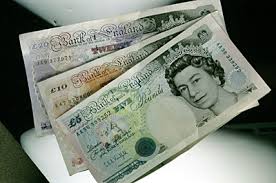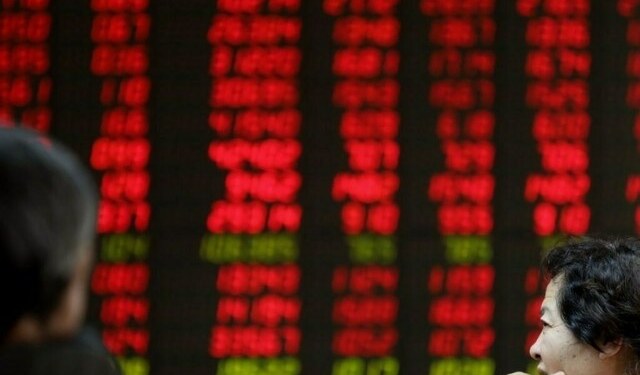Thursday, 15 October 2015 20:18
 LONDON: Sterling retreated from three-week highs against the dollar on Thursday, after a stronger-than-expected rise in core US consumer prices in September revived bets inflation is edging closer to the Federal Reserve’s two percent target.
LONDON: Sterling retreated from three-week highs against the dollar on Thursday, after a stronger-than-expected rise in core US consumer prices in September revived bets inflation is edging closer to the Federal Reserve’s two percent target.
The core consumer price inflation, which strips out food and energy costs, rose 0.2 percent after ticking up 0.1 percent in August, and somewhat allayed fears that a disinflationary trend was asserting itself in the world’s largest economy.
As a result, investors bought the dollar in afternoon trade in London. Sterling was down 0.3 percent at $ 1.5440, having hit a high of $ 1.5507, its highest since Sept. 22.
“The CPI print could steady the pessimistic stance, but the question remains as to whether the Fed can achieve levels of inflation close to its 2 percent target,” said Alex Lydall, senior trader at Foenix Partners, a firm which offers currency hedging solutions to UK companies.
Both the United States and the UK are grappling with headline inflation that is anchored around zero.
But both the Federal Reserve and the Bank of England are still expected to raise interest rates in the coming months, given a recovery in the job market.
The pound delivered its best daily performance in seven months on Wednesday after Britain’s unemployment rate hit its lowest since mid-2008, climbing 1.5 percent against the dollar.
The labour market data also showed earnings growing slightly more weakly than expected, and came a day after inflation was shown to have fallen back below zero in September.
A run of weaker data from the UK, as well as wider worries about global growth, have seen investors push back their expectations of when the BoE will start raising rates to the end of 2016.
Those growth worries have also seen expectations for the first Fed hike in almost a decade pushed back to the middle of next year, from this coming December just a month ago.
“Sterling has got the capacity to range-trade for a while (against the dollar), because ultimately I think the adjustments with respect to interest rate adjustments in the UK have been relatively similar to the US,” said Rabobank currency strategist Jane Foley.
“I don’t think there was anything in particular in yesterday’s data to suggest that the Bank of England should be in a hurry to raise rates.”
The pound climbed 0.6 percent to trade at 73.65 pence versus the euro, which fell against most currencies after European Central Bank policymaker Ewald Nowotny said it was now “obvious” the bank must do more to stimulate the euro zone economy.


























